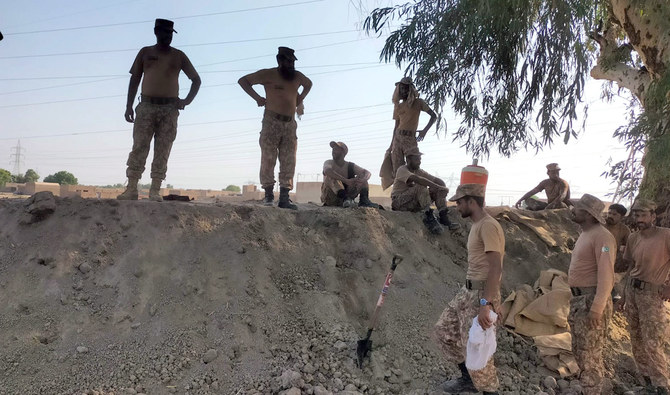ISLAMABAD: After hours of hectic efforts, Pakistani authorities built an embankment in the flood-hit district of Dadu to protect a vital grid station in the southern province of Sindh, confirmed Prime Minister Shehbaz Sharif on Tuesday while applauding the team working on the project.
Sindh is one of the worst-affected areas where recent floods have swept away houses, crops, livestock and public infrastructure.
Dadu, which is located near the country’s largest freshwater lake, remains submerged in flood.
“The initiative of constructing an embankment of three kilometers within 36 hours with the cooperation of civil and military authorities to protect Dadu grid station from floods is commendable,” PM Sharif said in a Twitter post.
Pakistan’s climate change minister Sherry Rehman also warned about the flood situation in Sindh a day before, saying the Indus River was in high flood near Kotri Barrage while pointing out that heavy inflow of water was posing a serious threat to the adjoining areas.
In a statement, Rehman said rain forecasts had predicted that monsoon was likely to stretch into September, resulting in rainfall across the country and proving detrimental to the rescue and relief operations in flood-hit regions.
“Floods have brought with them the menace of water-borne diseases such as dengue and cholera,” she said. “Karachi is seeing an outbreak of dengue as hundreds and thousands of patients are reporting daily at government and private hospitals.”
The climate-induced catastrophe has displaced a huge chunk of Pakistan’s population while putting an unbearable burden on state resources.
The government has appealed the international community for help, pointing out that the problem of climate change cannot be handled by individual countries on their own.


















